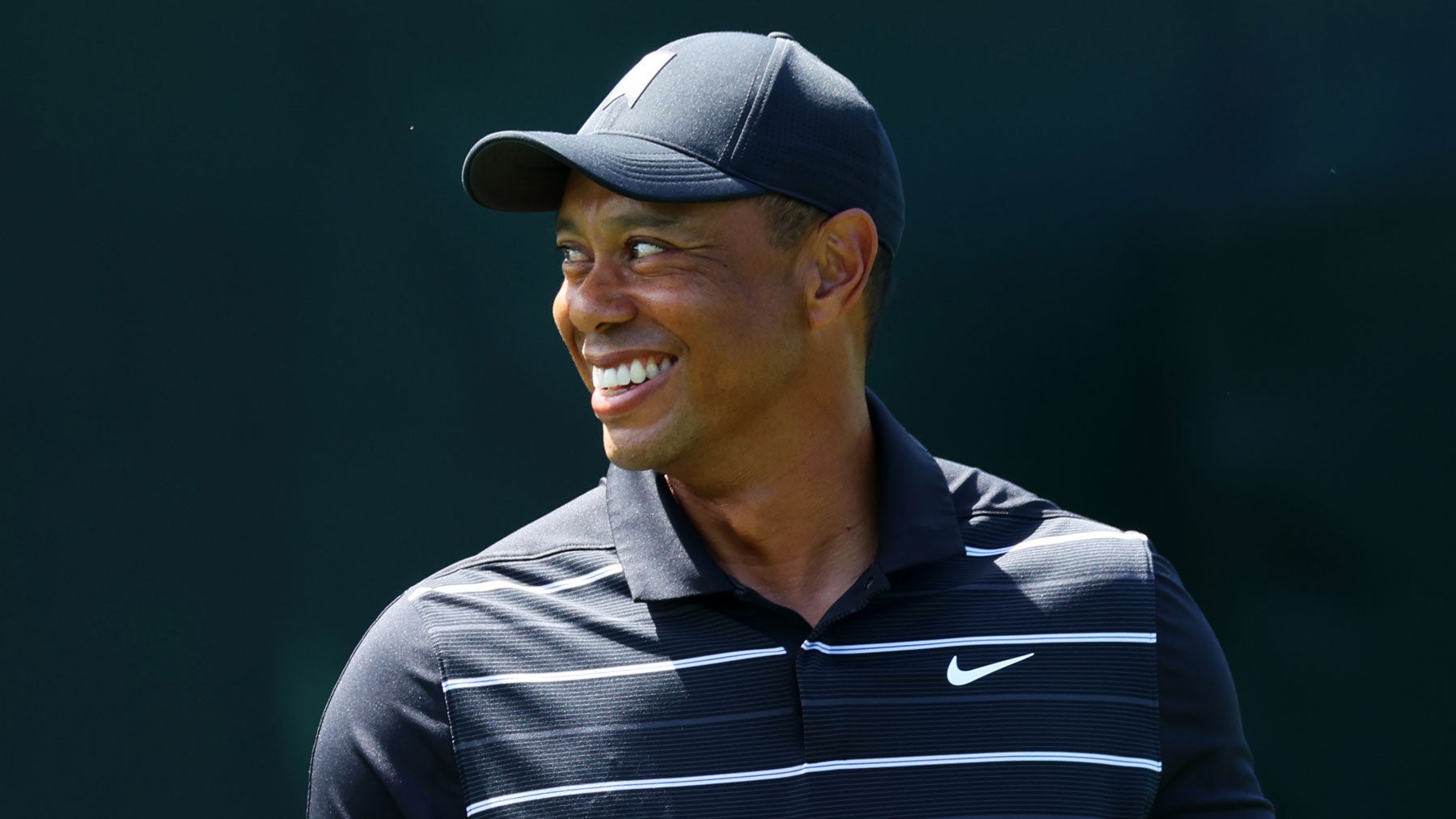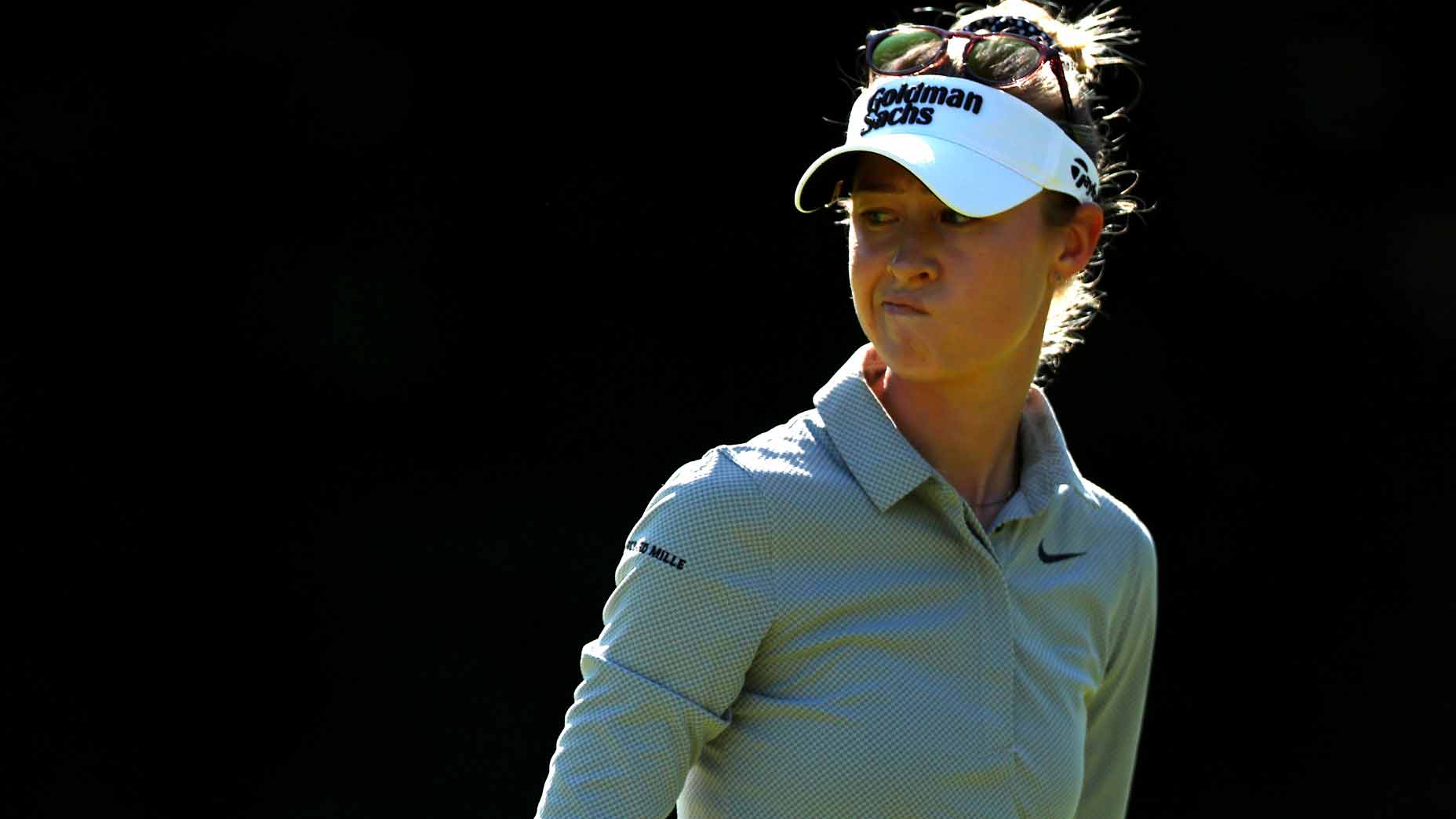
Players in Tiger Woods’ new golf league will be on the clock at all times.
Getty Images
If you’re going to play in the TGL, you best play quickly.
Or else.
The semi-virtual Monday-night golf league, created by Tiger Woods and Rory McIlroy’s TMRW Sports, announced Monday three new features of its competition that are essentially taken right from the gridiron and other team sports.
Most intriguingly, TGL contestants will be paced by a 40-second shot clock, likely the first time many of the 24 pros will be under the gun to execute a swing.
The league also announced the addition of timeouts and referees to its matches, which will be played at the SoFi Center, a 250,000-square-foot stadium at Palm Beach State College in Palm Beach Gardens, Fla. The venue features a massive screen and real grass for simulated shots, but the players then move to a 3,800-square-foot green complex for shots inside 50 yards.
A 15-hole, “Triples” and “Singles” format was also unveiled last week.
Here are more details about Monday’s announcement of the shot clock, referees and timeouts.
You’re on the clock all the time
A shot clock is not entirely new to professional golf. The DP World Tour staged the Austrian Open as the Shot Clock Masters in 2018 with 40- and 50-second shot clocks, and it received raved reviews. Sadly, it has not been done since.
Golf does technically have a time limit for how long it takes to play a shot. Rule 5.6b states, “When it is your turn to play, it is recommended that you make the stroke in no more than 40 seconds after you are able to play without interference or distraction.”
Rarely are golfers penalized under this rule, and it usually only occurs after a warning. With the TGL’s new 40-second shot clock, there won’t be any preemptive heads up.
Get a shock-clock violation, get a one-shot penalty, no ifs, ands or buts.
The TGL said the 40-second number was arrived at based on the current USGA recommendation.
There are five circumstances that will trigger the shot clock to be stopped and reset: A player has completed his turn, a player incurs a shot clock violation and receives a one-stroke penalty, a timeout, a penalty or a special circumstance determined by the referee and booth official.
Timeouts
Each TGL team will get four timeouts per match to avoid shot clock violations. Like in football, these timeouts are divided up, two for the three-man alternate “Triples” session and two for the one-on-one “Singles” session. They’ll also be use ’em or lose ’em as unused timeouts from the first session won’t carry over to the second session.
If timeouts were a thing in real golf, would Zach Johnson have used one with Jordan Spieth Saturday afternoon at the Ryder Cup? Tough to say.
Any member of a team can either signal or verbally call a timeout to the referee, who will acknowledge it. The team playing a shot can call a timeout at any time before the shot clock expires, but the opposing team can only do so before the other team’s player has addressed the ball. Teams also can’t call multiple timeouts on the same shot.
Goodbye rules officials, hello referees
Instead of a “Rules official,” the players in the arena will be joined by a referee with “experience with timeouts, shot clocks, and the dynamics of team sports.” Does that mean we might see some of the notable NFL or NBA referees calling shot-clock violations on PGA Tour pros? We shall see.
The league also said it will have a “booth official” who is an “expert in the rules of golf.” The TGL’s rules are “rooted in the traditional rules of golf” but there will also be special local rules to account for the league’s unique format and venue. TGL has not announced any of those local rules.











